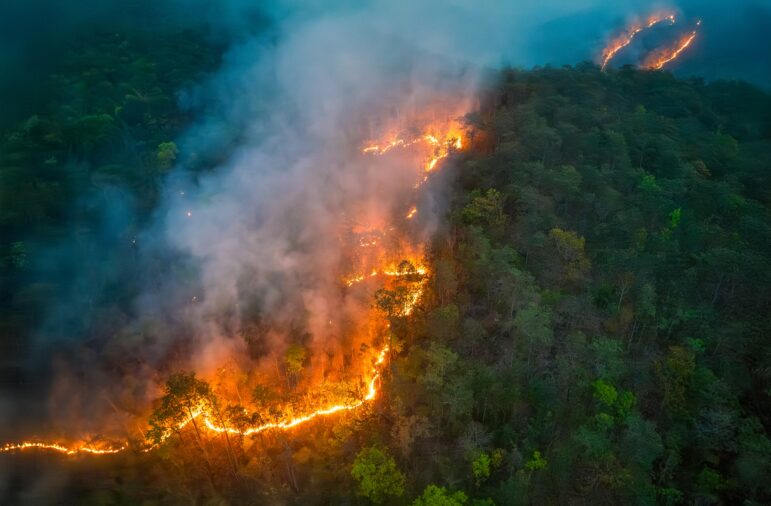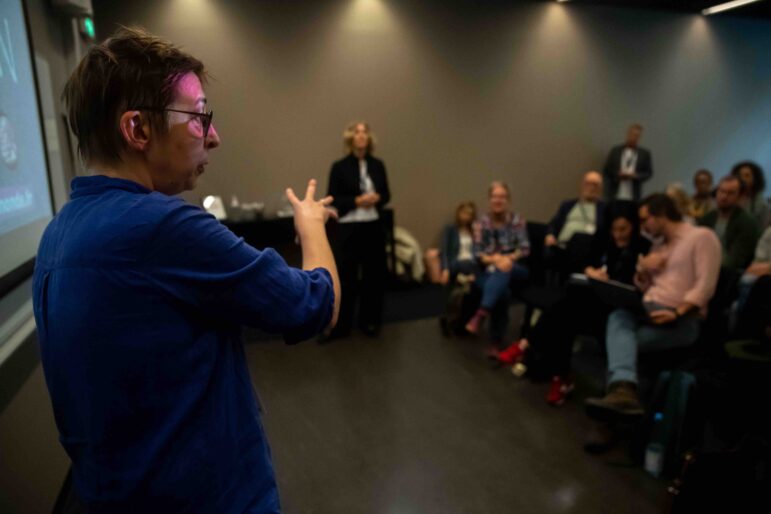
Research
Climate Change Reporting and Mental Health: Practical Tips for Newsrooms and Journalists
In a recent Reuters Institute webinar, experts discussed the latest research into the impact of climate reporting on journalists’ mental health.

In a recent Reuters Institute webinar, experts discussed the latest research into the impact of climate reporting on journalists’ mental health.

For decades, the work of INAI helped investigative reporters uncover hidden truths. They fear its abolition will hinder exposés on corruption and human rights abuses.
The UN process for evaluating national human rights records is long and complex, but offers valuable material for journalists.

At NICAR25, data reporters detailed how amateur transportation enthusiasts are a valuable, media-friendly, and underused source of critical tips and information for investigations.

To help data journalists with their reporting, here is a curated list of non-government websites and archives that preserve or maintain public health data.

Amnesty Tech’s Algorithmic Accountability Lab led a sweeping probe into possible algorithmic bias and mass surveillance by Denmark’s welfare agency.

Behind-the-scenes of an investigation into a program that gave formerly enslaved people in the US land titles after the Civil War — and then revoked them.

New remote sensing techniques are enabling researchers to monitor how armed conflict can be a driver of greenhouse gas emissions like methane.

Three experts dig into common open source errors that they’ve encountered to help other online investigators improve the quality of their work.

In this installment of a Pulitzer Center series, reporters Jelter Meers and Madeleine Ngeunga reveal tactics in investigating the financial incentives fueling environmental damage.

A Pulitzer Center toolkit for illegal, unreported, and unregulated (IUU) fishing, which impacts marine ecosystems, coastal communities, food security, and human rights.

Rebecca Clarren’s investigative history grapples with her immigrant family’s success at the expense of their Indigenous neighbors.
Featuring tools from OCCRP and Transparency International, plus the OpenCorporates database, this list contains key resources for reporters investigating corruption.
With official data from the UN, an online analysis tool for measuring global poverty from the World Bank, and statistics from charities and NGOs.
Read more about the Global Terrorism Index, and explore maps, databases, academic journals, plus the list of US-designated terror and militant groups.
From Interpol to the UNODC, and from the US State Department to academic and civil society organizations, here are resources for reporters on the crime beat.
This database includes key resources, watchdog groups, and case studies for investigating the carbon offsets market.
Listing expert sources, databases, health maps and more from the World Health Organization, United Nations, Eurostat, and other international bodies monitoring global health.
With data and resources from the IOM and OECD, with figures on displacement globally, refugee flows, labor migration, plus a glossary.
Need agricultural data from Asia, Latin America, the US, Europe, or Africa? See our comprehensive list of official information sources.
To better share our reporting guide on investigating war crimes, GIJN has now published our online guide as the organization’s first-ever e-book.

Experts agree that AI-driven audio deepfakes could pose a significant threat to democracy and fair elections in 2024.
Carbon offsets are truly an international climate change story with potential for cross-border collaboration between journalists.
What happened when 80 climate change journalists and experts met to discuss the future role of investigative journalism in climate crisis reporting.
Open source information can be a valuable method of reporting when investigating violations of international humanitarian law or war crimes.
A quick reference guide to reporting on attacks on civilians during armed conflicts as part of investigations into war crimes.
GIJN has created a list of useful databases, resources, tipsheets, and research links related to war crimes and atrocities.

Collaboration between investigative journalists and scientists can bring great rewards, but for successful collaborations, journalists must also consider how they can help scientists.